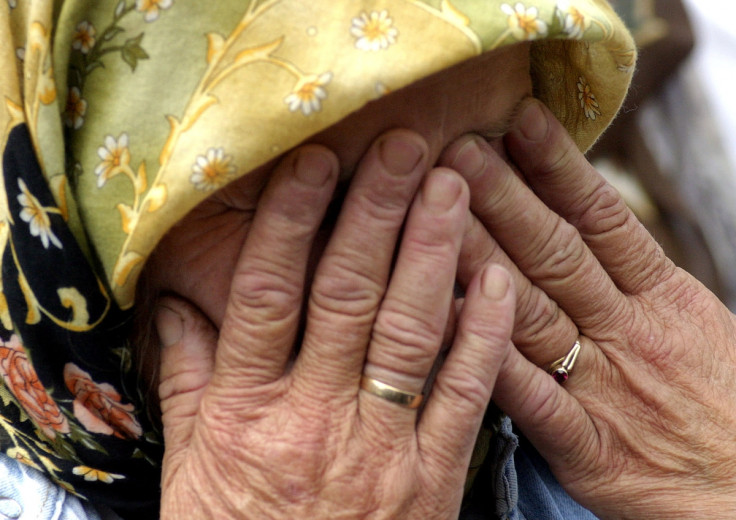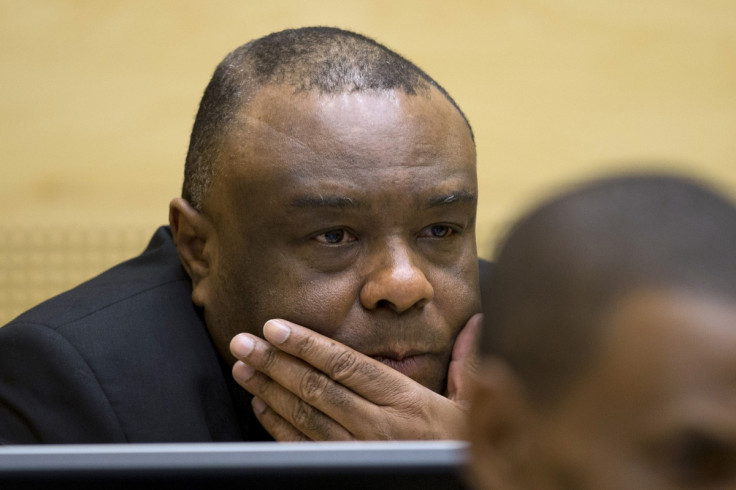Mass rape as a weapon of war: Bosnia verdict a warning to leaders who unbolt the heart of darkness
Bosnia verdict shows the tide is turning for leaders who use mass rape as a weapon of war

She was 17. Her name was Mirsada and she was rounded up with the other girls and women in her Bosnian village on March 3, 1992. As she was marched through her town she saw "pandemonium": "corpses, people dead in their own yards. Some of the houses were burning...".
Five hours later she reached what she described to the Los Angeles Times the following year as a "forest motel." It was a Serbian rape camp. And it would be Mirsada's home for the next four months.
Each night as many as two dozen men would come and do "all kinds of things to us," she said. "It cannot be described, and I don't want to remember." She told the newspaper that "most" of the girls did not survive the torture and that she felt that death could not be as bad as what she'd suffered. Mirsada was only one of tens of thousands of women who were sexually violated during the Bosnian war by Serb militants.
Over the past few years, I've spoken to a number of Bosnian and Croatian activists who told me that women survivors are still living among their rapists—that they have spotted them on city buses or out in their town at night. There has been little peace for the women of this war, most of whom have seen little or no justice for the violence and destruction of their bodies, their communities, and their souls. No true justice that is, until now.
With the conviction of Bosnian Serb leader Radovan Karadzic on March 24 at the International Criminal Tribunal for the Former Yugoslavia, many of the women and men who suffered like Mirsada have finally seen justice at a level so many thought would never come. Found guilty of genocide, crimes against humanity, and war crimes, Karadzic has been held responsible among his many horrifying charges for using rape as a weapon of war. This comes just on the heels of another critical verdict on March 21, this one at the International Criminal Court.

Jean-Pierre Bemba, the former vice president of the Democratic Republic of Congo was found guilty of having command responsibility—the first instance of such a ruling at the ICC—for mass rape in the Central African Republic in 2002-2003.
Together, the two convictions are being lauded as "momentous" by Physicians for Human Rights, a group that has spent decades documenting mass rape in not only the Bosnia war but in the Democratic Republic of Congo, Darfur, and many other conflict zones.
"We've seen over the decades how difficult it is to gain convictions for rape as a weapon of war," said Susannah Sirkin, who oversees PHR's international policy engagement and spent years documenting rape and other crimes committed during the Bosnian war. But with two such important international legal convictions in a single week, it would appear, as Sirkin put it, that "the tide is turning".
The Karadzic decision is crucial on so many levels in that it finally, 20-something years later, tells the world that one of the men in charge of so much death and destruction will spend much, if not all, of the rest of his life behind bars. Rape is just one part of the crimes he has been found responsible for having sanctioned.
The question is, however, why it has taken so long to find such justice.
After decades of feminist activism, rape is now commonly prosecuted as a war crime and as part of genocide, although it has officially been recognized under customary law "for ages," says Patricia Sellers, the special advisor for prosecution strategies for the Office of the Prosecutor at the International Criminal Court. She is also the former legal advisor and acting senior trial attorney at the ICTY.
Between 250,000 and 500,000 women were raped in just three months of war in Rwanda in 1994. More than 200,000 are estimated to have been raped in Sierra Leone in the 1990s, and hundreds of thousands of women have been violated in DRC's 20-year war. These are just a few of the conflicts in the 20<sup>th century in which wars have been fought decisively on women's bodies.
Raping a woman is an effective way for perpetrators to denigrate and humiliate not only women but also men; to gain information; and yes, to "ethnically cleanse" a community — impregnating the enemy with "superior" sperm can literally annihilate future generations of a particular ethnicity. The stigma that follows sexualized violence can ruin not only the woman's life but often that of her community and family, who in many parts of the world reject her for being "tainted."

Women right now in Syria are suffering this very fallout from not only rape by the Islamic State but also by Assad regime forces.
Less immediately visible than mass graves or the bombing of whole towns, rape was rarely a priority in the past compared to what were considered not only more obvious, but often more "serious" crimes.
"In cases years ago, before the courts really paid much attention to sexual violence, it would have gotten lost in such a large case" such as Karadzic, said Erin Gallagher, a former investigator at the ICTY. "It would have been considered a lower priority" compared to genocide or ethnic cleansing.
Thankfully, there has been a shift over the last 20 years toward including mass rape when investigating war crimes, with more gender-mixed investigative and judicial teams prioritizing these acts.
Still, I keep coming back to the men on buses next to their victims in Bosnia. Many, many men who raped women in the war have not, and likely will never, see a single day in prison.
Rada Boric, the Croatian co-organizer of the first European women's court to deal with crimes committed against women in the former Yugoslavia, says that she's met women who have expressed that while they'd like to see their direct perpetrators tried, they would certainly also like to see those who were in command convicted. And convicted Karadzic was, and now perhaps for women in the region, they have been given a chance to come one step closer to healing.
Gallagher believes this decision will do just that: "I have to believe cutting off the head of a snake is going to have a long-term positive effect on a country and a community, even when the direct perpetrators are not caught or convicted."
Back in 1993, Mirsada told the LA Times: "Sometimes I think that I will go crazy and that the nightmare will never end."
Wherever she is now, I hope that this month's triumph over two evil men will finally give Mirsada some peace.
Lauren Wolfe is a columnist at Foreign Policy magazine and the director of WMC Women Under Siege, a Women's Media Center project on sexualized violence in conflict. She's on Twitter at @Wolfe321.
© Copyright IBTimes 2025. All rights reserved.




















